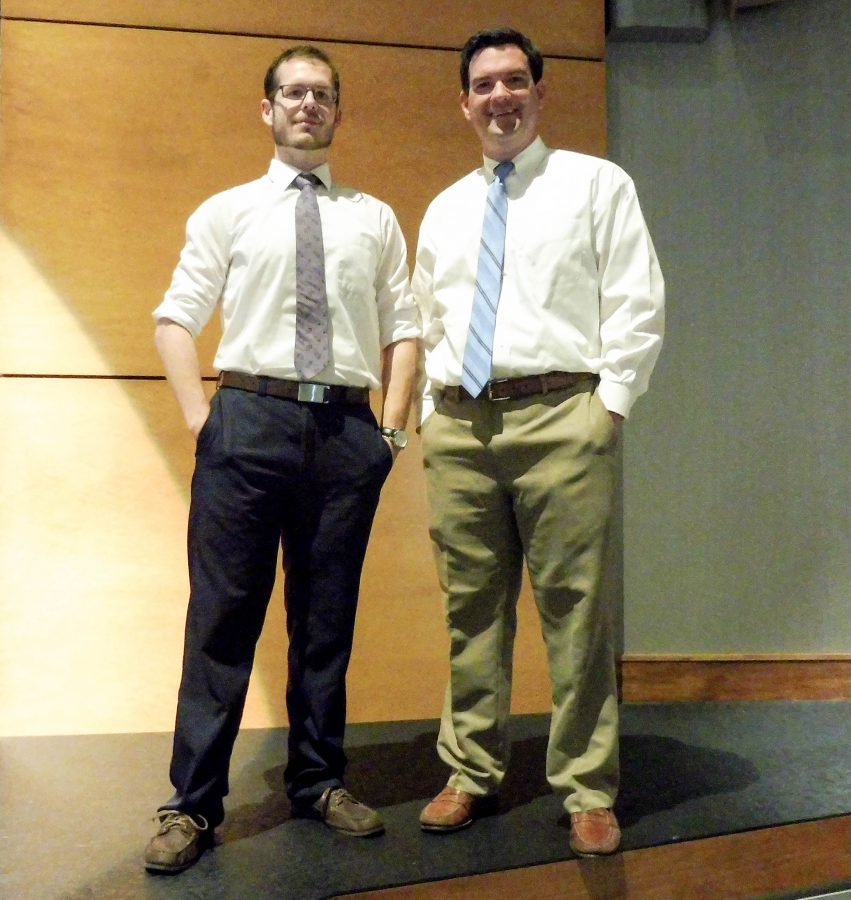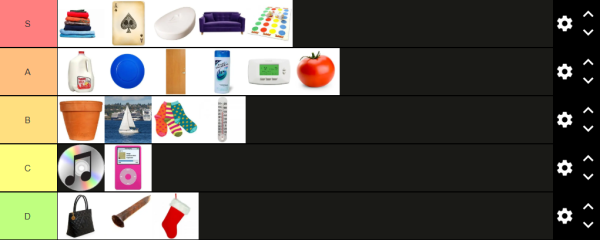Students Listen to Speech about Appropriate Social Media Use
Joe Ryan and Mr. Clarke chat following the speech.
On Tuesday, April 3rd, all Upper School students and faculty had the opportunity to listen to a guest cyber awareness speaker, Joe Ryan. Ryan currently works in the South Carolina Attorney General’s office and has a passion for encouraging others to use social media appropriately. He previously worked as a county sheriff in Richland County and as a school resource officer at a South Carolina high school. Ryan strongly persuaded the student body to learn to implement the correct online behaviors because the consequences of wrongdoing are harsh and could vastly impact one’s future.
Ryan remarked that yes, high schoolers are prone to regrettable mistakes, but there is a large difference between those mistakes being made in private versus posting them online for future college admission boards and employers to find. A “preventative measure” that caused many students to sit up in their chairs is the fact that Ryan, along with his colleagues, have the authority and means to create fake online profiles to make them appear as though they are students. These fake profiles are created for the purpose of finding drug abusers and parties in the student body or even in the community. This fact may put some users on edge but highlights how a private account can be made public, landing many students who assumed they were having a confidential conversation in big trouble with the law. Ryan argued that “the people who seem the most uncomfortable with this are the ones who most likely have something they want to hide.” While investigating teenagers online behaviors, Ryan was able to easily get an inside look on all inappropriate offenses made by teenagers. Ryan concluded that an over-sharing attitude comes along with an age of technological advances and that our generation probably does have a slight obsession with social media.
So, as students of the CCES community, what is our social media obligation? Do we run home and delete our “finstas” or unfriend all the followers who we have yet to meet? Realistically speaking, it’s true that kids will continue to make these mistakes no matter how hard adults try to alter our online behaviors. Ryan did a great job of telling us the consequences of taking an “inappropriate image” or worse sharing it with someone else. The punishment seems to jump from social ridicule to a federal offense. With these repercussions in mind, it becomes almost impossible to speak up. Students, out of fear of catching a charge, will fail to receive the help they need when being victimized online. If Mr. Ryan’s presentation of South Carolina’s sexual offense laws and those who enforce them is correct, then victims will always feel bad about coming forward. The question of whether or not the cost of speaking up is even worth doing the right thing will always pose a threat to social media users who are in a tough situation. Rather than focusing on the charges that students could face, for example the issues of sexual violence, online predators, and consent, should be discussed further in order to prevent the acts that no one wants to see scrolling through their news feed.






